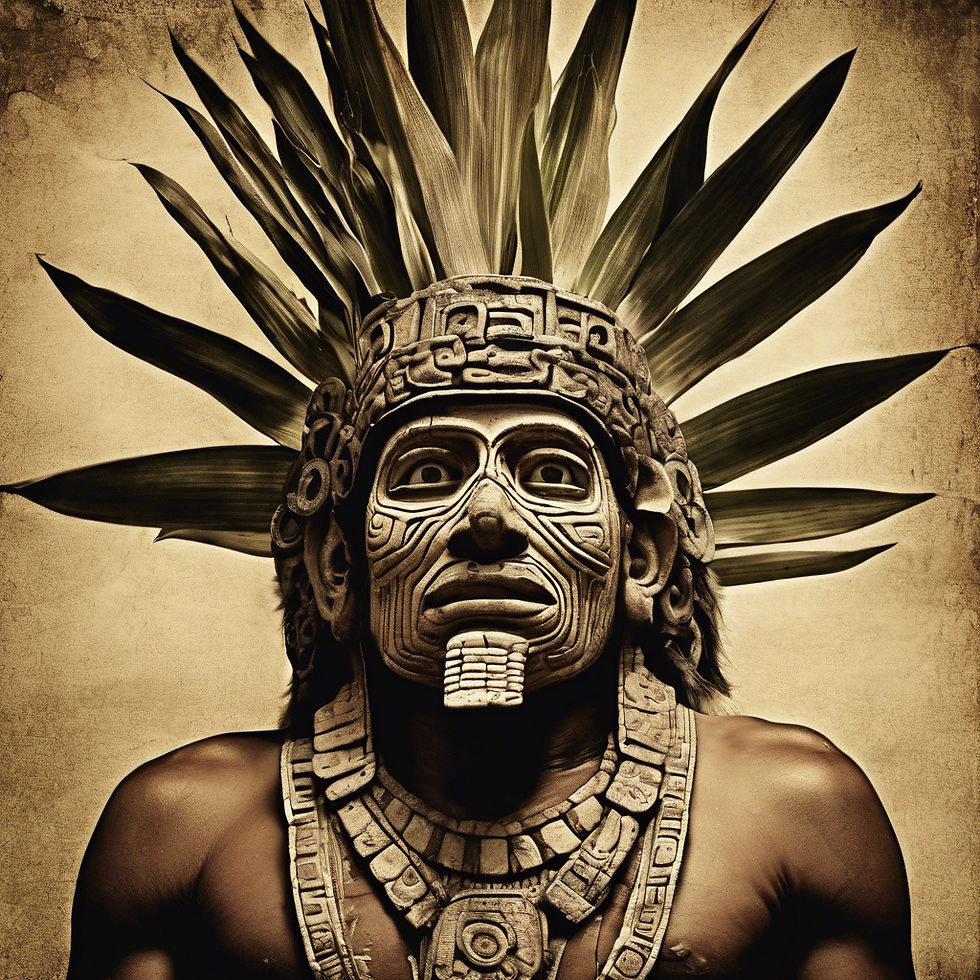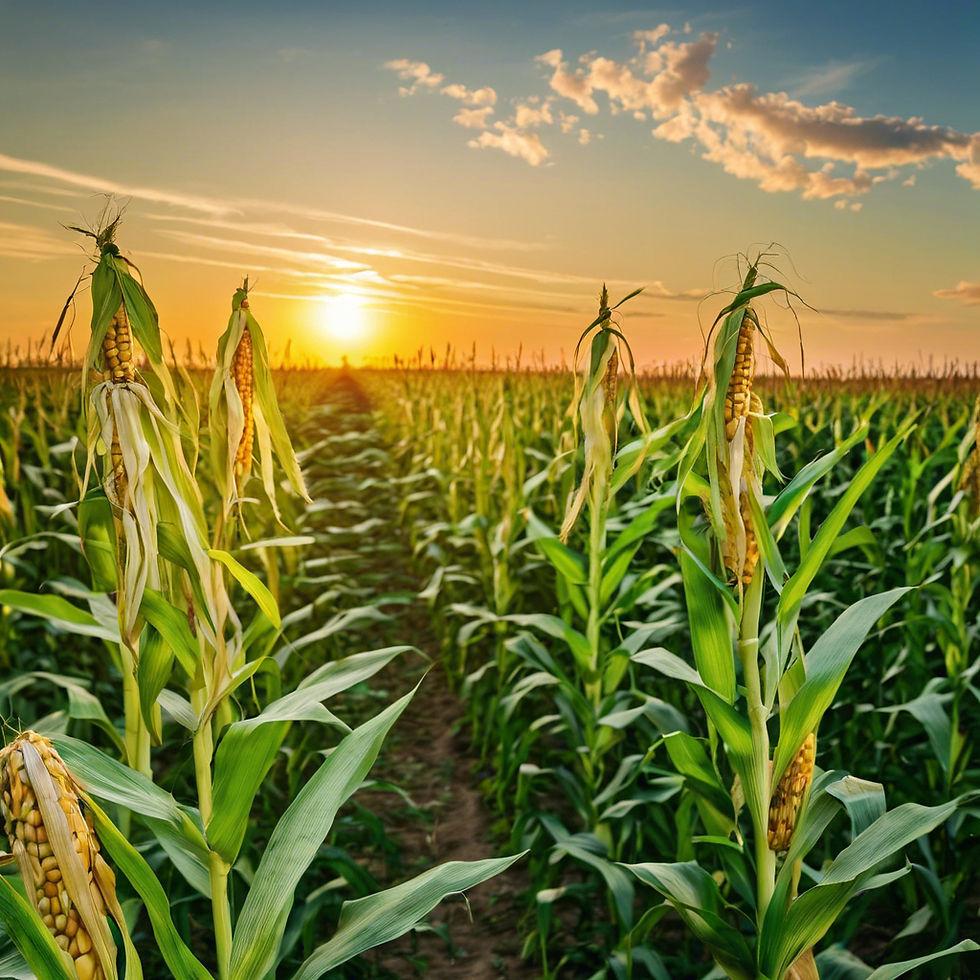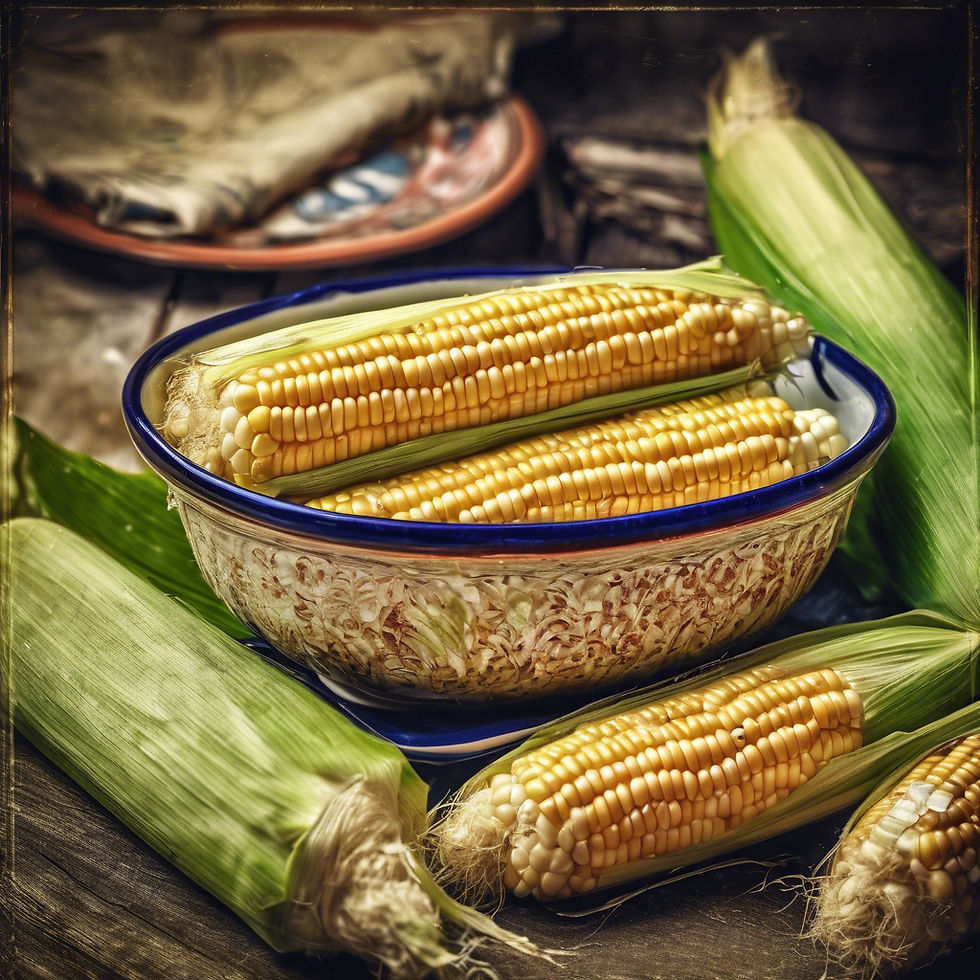Exploring Our Connection to Maize: The Legacy of Being Sons and Daughters of the Corn
- Scarly

- May 26, 2025
- 5 min read

Maize, or corn as it is commonly known, is not just a staple food that has nourished populations around the world; it is deeply ingrained in the identities and cultures of many communities, particularly in Mesoamerica. The phrase "somos hijos del maíz," which translates to "we are children of corn," encapsulates this profound connection to maize, highlighting its significance beyond mere sustenance. In this blog post, we will delve into the rich history, cultural relevance, and ongoing importance of maize in various aspects of life, from agriculture to spirituality, and how it continues to shape our identities today.
The Historical Roots of Maize Cultivation
Maize was domesticated in southern Mexico about 9,000 years ago. Archaeological evidence suggests that early Mesoamerican societies cultivated wild grasses, which eventually led to the development of the corn we know today. This domestication revolutionized food production, enabling the rise of civilizations such as the Olmec, Maya, and Aztec.
The cultivation techniques developed by these early communities demonstrate their deep understanding of maize's biological needs. From crop rotation to selective breeding, ancient farmers made advancements that would allow maize to thrive in various climates and terrains.
This agricultural innovation allowed populations to grow and establish complex societies with intricate social structures, trade systems, and rich cultural traditions, all interwoven with maize.
Maize not only provided sustenance but also became a centerpiece of their economies, ceremonies, and ways of life.
The Spiritual Significance of Maize
For many indigenous cultures, maize holds a sacred position that transcends its agricultural value. It is often viewed as a living entity that connects humanity to the divine. In the mythology of several Mesoamerican civilizations, maize is considered a gift from the gods, serving as the basis for human creation itself.
The Popol Vuh, a sacred Maya text, narrates how the gods initially attempted to create humans from mud and then wood, both of which failed to yield satisfactory beings. Finally, they created humans from maize dough—a concept that embodies the idea that people are inherently linked to maize, affirming the phrase "somos hijos del maíz."
This spiritual connection often manifests in various ceremonies and festivals centered around maize, celebrating its life cycle—from planting to harvest. These rituals serve as a reminder of the importance of maize in both daily life and spiritual practice, establishing a relationship of respect and gratitude towards this ancient grain.

Maize in Contemporary Culture
Today, maize remains a vital component of daily life in many communities, particularly among indigenous populations in Mexico and Central America. Traditional dishes such as tortillas, tamales, and pozole are staple foods, and their preparation often incorporates age-old techniques passed down through generations.
Furthermore, the resurgence of interest in indigenous culinary practices reflects a growing appreciation for the nutritional and cultural value of maize. Chefs and food activists are rediscovering heirloom varieties of corn, highlighting their unique flavors and historical significance.
This revival is not only about preserving culinary traditions but also about advocating for food sovereignty and sustainable agriculture. By returning to traditional ways of cultivating and consuming maize, communities are reaffirming their identities and resisting the homogenizing forces of globalization.
The Economic Impact of Maize
In many parts of the world, maize plays a crucial role in local economies. From small-scale farmers to large agribusinesses, maize cultivation provides livelihoods for millions. However, the economic landscape of maize production has changed dramatically over the years, especially with the advent of biotechnology and genetically modified organisms (GMOs).
While GMOs can increase yields and reduce the need for pesticides, they also raise concerns about biodiversity, health, and the rights of farmers. The debate surrounding maize production often focuses on larger issues of dependency, control, and sustainability.
Smallholder farmers who have relied on traditional farming practices face significant challenges against industrial agriculture. There is a growing movement advocating for the preservation of local varieties and traditional farming methods, emphasizing the importance of agro-biodiversity.
This dynamic reflects a broader struggle over food systems, where the legacy of maize as a symbol of community resilience and cultural heritage is pivotal.

The Global Influence of Maize
The influence of maize extends beyond Mesoamerica, impacting cultures and economies worldwide. Today, maize is one of the most widely cultivated crops globally, serving as a crucial source of calories for both humans and livestock.
The adaptability of maize has led to its introduction into various cuisines, influencing dishes and agricultural practices on every continent. Popcorn, polenta, and cornbread, for instance, are just a few examples of how maize has permeated culinary traditions around the globe.
However, the globalization of maize presents both opportunities and challenges. On one hand, the global trade of maize contributes to food security by providing essential resources to areas facing shortages. On the other hand, it raises questions about agricultural practices and the impact of monoculture on local ecosystems.
Advocates for sustainable agriculture emphasize the importance of maintaining traditional farming practices and supporting local farmers to create a balanced food system that respects both global needs and local identities.
The Future of Maize Cultivation
As we move into the future, the importance of maize is likely to grow in the face of changing environmental conditions and global demands. Climate change poses significant threats to agriculture, making the need for resilient crop varieties more critical than ever.
Research into sustainable farming practices, such as agroecology, is expanding our understanding of how maize can be cultivated in a manner that preserves both the environment and cultural traditions. This approach emphasizes the importance of biodiversity, organic farming, and honoring indigenous knowledge.
Additionally, breeding programs focused on developing locally adapted maize varieties can help communities maintain their agricultural heritage while addressing modern challenges. By fostering a connection between ancestral practices and contemporary methods, future generations can continue to embrace the legacy of being children of maize.
Conclusion
The phrase "somos hijos del maíz" extends far beyond a simple statement of identity; it embodies a rich tapestry of history, culture, spirituality, and resilience. As we explore our connection to maize, we begin to understand its role as a fundamental source of life and identity for many communities.
In recognizing the historical significance, spiritual meanings, and contemporary relevance of maize, we can better appreciate the diverse narratives that shape our food systems today. By advocating for sustainable practices and celebrating traditional knowledge, we pay homage to the generations that have come before us and pave the way for a more harmonious future.
The legacy of maize as a symbol of human connection to the earth reminds us that we are all, in some way, children of the corn. Embracing this identity fosters a deeper understanding of our responsibilities to the environment and to each other, ensuring that the legacy of maize will endure for generations to come.



Comments